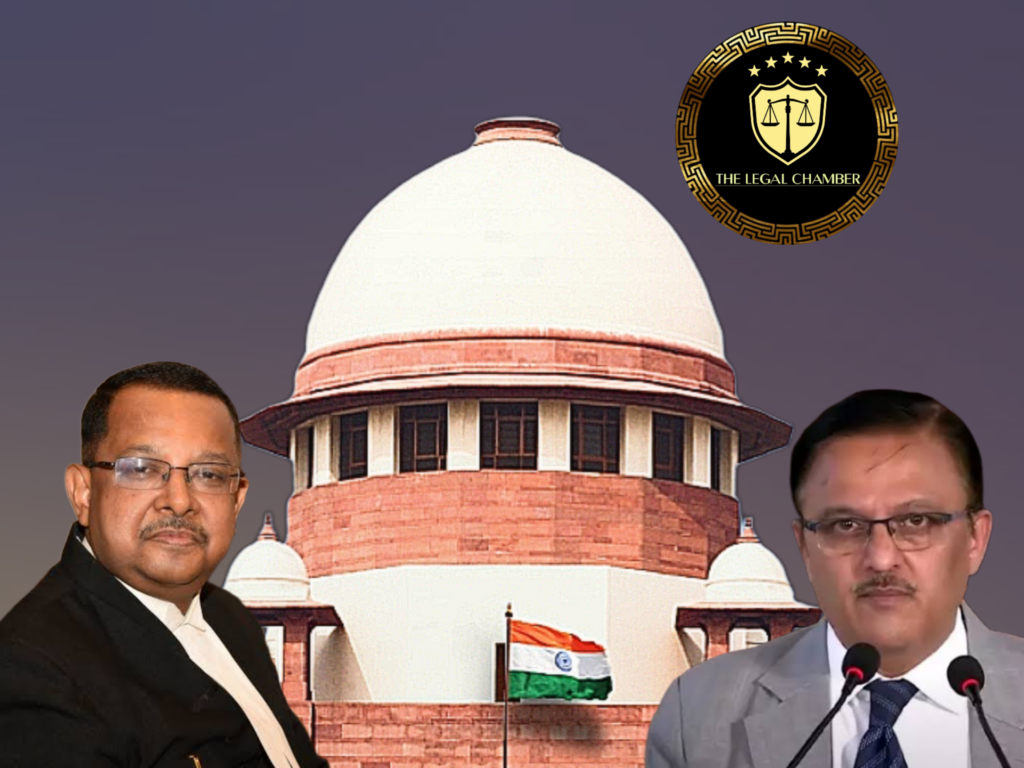
The Supreme Court upheld the Railway Board’s policy under Paragraph 313A of the Indian Railway Establishment Manual, 1989, ruling that surplus employees absorbed in a new division lose past service benefits for seniority and are treated as fresh entrants. Those who voluntarily opted for transfer were also placed at the bottom of the recruitment grade, affirming the Tribunal and High Court’s decisions. The Court rejected arguments challenging the retrospective application of the circular, clarifying that redeployed staff cannot claim seniority based on prior service.
Facts Of The Case:
The case involved railway employees (guards and senior guards) from Bhavnagar Division of Western Railway who were affected by operational changes due to the conversion of meter gauge to broad gauge tracks, leading to reduced train services. In 2002-2003, several posts were surrendered, rendering some employees surplus. The railway authorities offered them the option to transfer to another division, with some accepting and joining Ahmedabad Division (initially under Baroda Division) in April 2003. Another group, including mail/express and passenger guards, were transferred later in April 2004 after being declared surplus.
A dispute arose over seniority upon absorption, with the railway applying Paragraph 313A of the Indian Railway Establishment Manual, which mandated that surplus employees be treated as fresh entrants in the new division, losing past service benefits. Some employees challenged this before the Central Administrative Tribunal (CAT), arguing they should retain seniority.
The CAT and Gujarat High Court upheld the railway’s policy, stating that voluntary transferees and surplus staff must be placed at the bottom of the recruitment grade. The Supreme Court affirmed these findings, ruling that the 2004 circular applied prospectively and that the employees’ acceptance of transfer terms barred any claim to retained seniority. The decision reinforced the railway’s authority in managing surplus staff redeployment.
Procedural History:
The case originated when respondents Nos. 4 to 7 (original applicants) filed Original Application No. 355 of 2006 before the Central Administrative Tribunal (CAT), challenging the seniority of certain railway guards who were transferred from Bhavnagar Division to Ahmedabad Division. The CAT ruled in favor of the railway administration, holding that surplus employees absorbed in a new division must take seniority from the date of absorption, placing them at the bottom of the recruitment grade.
Dissatisfied with the CAT’s decision, the affected employees (appellants) approached the Gujarat High Court, which upheld the Tribunal’s judgment in its impugned order. The High Court rejected arguments against the applicability of the Railway Board’s 2004 circular (introducing Paragraph 313A of the Establishment Manual), confirming that surplus staff could not retain past service benefits for seniority.
The appellants then moved the Supreme Court through Civil Appeal No. 5498 of 2012 and a connected SLP (C) No. 15769 of 2010. The Supreme Court, in its 2025 judgment, dismissed the appeals, affirming the concurrent findings of the CAT and High Court. It ruled that the 2004 policy governed the dispute and that the appellants, having accepted transfer terms, were bound by the bottom seniority rule. The Court also clarified that closed cases could not be reopened under the new circular.
Court Observation:
The Supreme Court made several key observations while dismissing the appeals. It noted that the Railway Board’s circular dated 26th June 2004 and the subsequent insertion of Paragraph 313A in the Indian Railway Establishment Manual, 1989 were valid and applicable to the case. The Court emphasized that surplus employees, whether transferred voluntarily or compulsorily, must be treated as fresh entrants in the absorbing division, with their seniority reckoned from the date of absorption.
The Court rejected the appellants’ contention that they should retain their past service benefits, observing that the 2004 policy was prospective and did not suffer from any arbitrariness. It highlighted that the Western Railway’s longstanding policy (since 1989) mandated junior-most employees to be declared surplus first, and those who voluntarily opted for transfer did so with the clear understanding of being placed at the bottom of the seniority list. The Bench also noted that the prayer for repatriation had not been pressed before the High Court and thus could not be revived in appeal.
Ultimately, the Court upheld the administrative rationale behind the policy, stating that it balanced the interests of both surplus employees and existing staff in the absorbing division. It found no illegality in the Tribunal’s and High Court’s concurrent findings, reinforcing that judicial interference in such service matters was unwarranted unless the decision was manifestly unjust.
Final Decision & Judgement:
The Supreme Court dismissed the appeals, upholding the decisions of both the Central Administrative Tribunal (CAT) and the Gujarat High Court. The Court ruled that the Railway Board’s 2004 circular and Paragraph 313A of the Indian Railway Establishment Manual were valid and applicable, mandating that surplus employees absorbed in a new division forfeit past service benefits for seniority and be treated as fresh entrants. It emphasized that employees who voluntarily opted for transfer did so with the explicit understanding that they would be placed at the bottom of the recruitment grade’s seniority list.
The Court rejected arguments challenging the retrospective application of the policy, clarifying that closed cases could not be reopened. By affirming the administrative rationale behind the policy—balancing the interests of surplus employees with those of existing staff—the judgment reinforced the railway’s authority in managing redeployment. The Bench found no legal infirmity in the concurrent findings of the lower forums and declined to interfere, concluding that no manifest injustice had been demonstrated. The appeals were accordingly dismissed with no order as to costs.
Case Details:
Case Title: Dinesh D Panchal & Ors. vs. Union of India & Ors. Citation: 2025 INSC 613 (Non-Reportable Judgment) Nature of Appeal: Civil Appeal No. 5498 of 2012 Date of Judgment: May 1, 2025 Bench: Justice Abhay S. Oka and Justice Ujjal Bhuyan